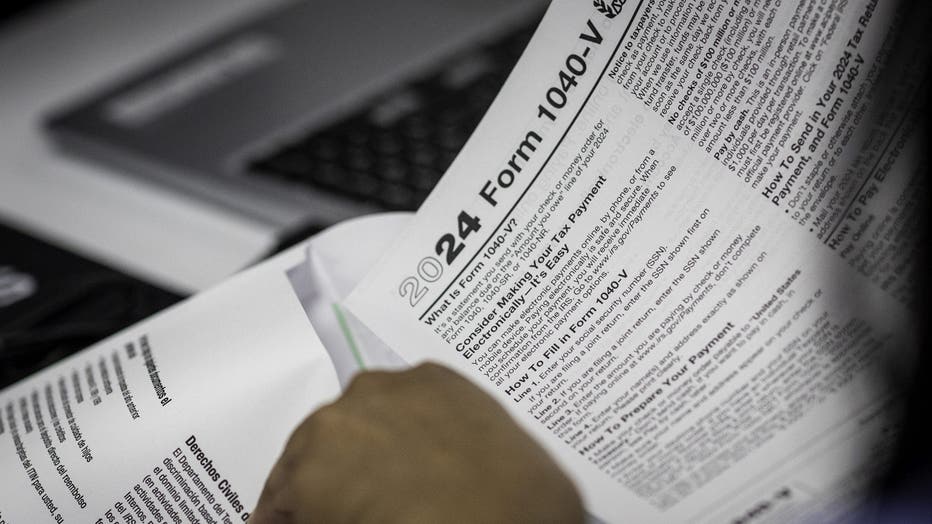SALT deduction: What it could mean for your taxes

House passes President Trump's 'Big Beautiful, Bill'
House representatives passed President Donald Trump's Big Beautiful Bill on Thursday. House Speaker Mike Johnson pushed for Republicans to get the bill passed.
One of the most contentious issues in the "big, beautiful" tax bill the House passed Thursday is how much to raise the state and local tax deduction, or SALT, for tax filers.
GOP lawmakers and some Democrats from New York and other high-tax states have been rallying to quadruple the $10,000 deduction for state and local taxes, despite concerns from conservative Republicans over the cost.
It appears the "SALT" caucus has won that battle – for now – as the SALT cap increase was included in the final product of the bill. The issue faces an uncertain future as the tax bill moves to the Senate.
How the SALT deduction works
The backstory:
For the roughly 10% of Americans who itemize their federal income tax return, they can deduct the total of state and local taxes they paid by up to $10,000. The $10,000 limit on the SALT deduction was put in place in 2017 to help offset the cost of the massive tax cuts passed during President Donald Trump’s first term. The $10,000 limit was temporary and expires at the end of 2025.
RELATED: House passes Trump's 'big beautiful' tax bill: What's in it
Under the new tax bill that just passed the House, the "SALT" cap increases to $40,000 for incomes up to $500,000, with the cap phasing downward for those with higher incomes. Also, the cap and income threshold will increase 1% annually over 10 years.
READ MORE: Crypto stablecoin bill passes early Senate vote
Who benefits from higher SALT deductions?
Dig deeper:
According to the Tax Foundation, a tax policy think tank, the increase in SALT deductions will mostly benefit higher-income taxpayers in high-tax states. Researchers said it would make the tax code more regressive.

FILE - U.S. tax forms (Photo by John Moore/Getty Images)
"Even with an income phaseout for taxpayers earning over $500,000, the top 20 percent of taxpayers would be the only group to meaningfully benefit," the Tax Foundation analysis says.
The other side:
But the move to restore the SALT deductions has some bipartisan support. Rep. Josh Gottheimer, a New Jersey Democrat, says it’s a middle-class issue, and allowing taxpayers to deduct more will end "double taxation" and give middle-class families in high-tax states "a much-needed tax cut."
The Source: This report includes information from The Associated Press, Rep. Josh Gottheimer's office and the Tax Foundation.

